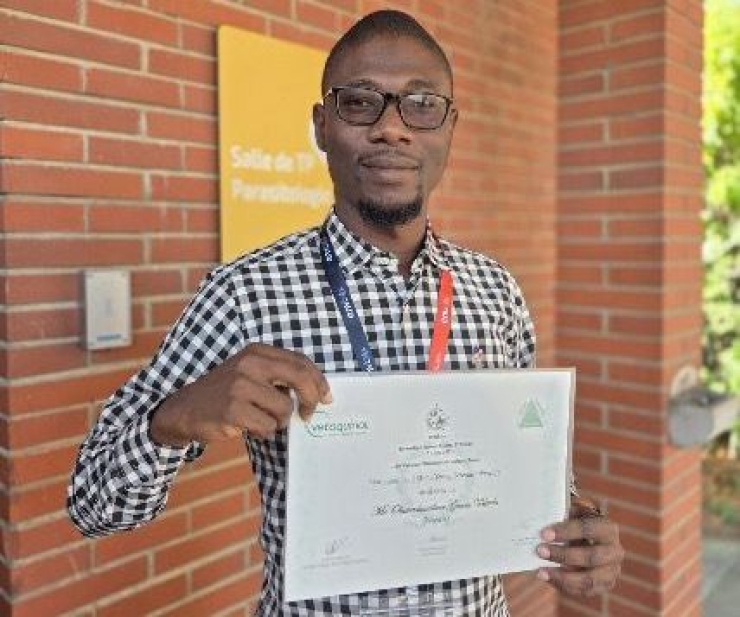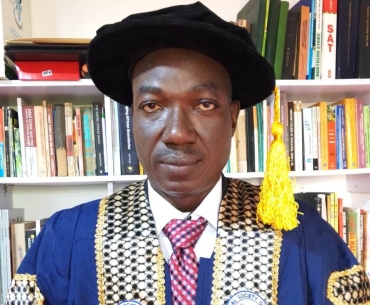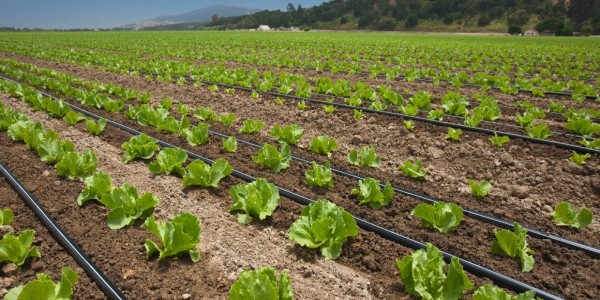Notice is hereby given that the results of the 2025 Unified Tertiary Matriculation Examination (UTME) screening exercise into Osun State Univesity have been released. UTME Candidates who participated in the exercise are therefore advised to check their screening results via the Undergraduates Admissions Portal at https://admissions.uniosun.edu.ng.
A final-year PhD student of Osun State University (UNIOSUN), Oluwadamilare Dauda, has made the university and Nigeria proud by winning the Young Scientist Award from the National Veterinary School of Toulouse, France, in recognition of his groundbreaking research on blackfly transmission of onchocerciasis (river blindness) in southwestern Nigeria.
Osun State University has once again affirmed its rising status in Nigeria’s research landscape by securing two out of the 158 competitive research grants awarded Nationwide in the 2025 cycle of the Federal Government’s National Research Fund (FG-NRF). The 2025 FG-NRF research grant was open competition for all public tertiary institutions, including the universities, polytechnic, and colleges of education across Nigeria.
Osun State University has once again affirmed its rising status in Nigeria’s research landscape by securing two out of the 158 competitive research grants awarded Nationwide in the 2025 cycle of the Federal Government’s National Research Fund (FG-NRF). The 2025 FG-NRF research grant was open competition for all public tertiary institutions, including the universities, polytechnic, and colleges of education across Nigeria.
The attention of the Management of Osun State University (UNIOSUN) has been drawn to a misleading post circulating on Facebook regarding the University’s admission process, screening method, and purported mentorship services.
In a significant boost to Osun State University’s growing international profile, Professor Olukoya Ogen, a renowned historian and Director of the Office of Research and Innovation Management (ORIM), has been elected a Fellow of the Royal Historical Society (RHS), United Kingdom, becoming the second Nigerian and African scholar to receive the prestigious honour.
In a significant boost to Osun State University’s growing international profile, Professor Olukoya Ogen, a renowned historian and Director of the Office of Research and Innovation Management (ORIM), has been elected a Fellow of the Royal Historical Society (RHS), United Kingdom, becoming the second Nigerian and African scholar to receive the prestigious honour.
The Vice-Chancellor of Osun State University, Professor Odunayo Clement Adebooye, has been conferred with the Distinguished Service Award by the Postgraduate College of Obafemi Awolowo University (OAU), Ile-Ife, in recognition of his exceptional contributions to National development, public service, and the advancement of higher education in Nigeria.
The Vice-Chancellor of Osun State University, Professor Odunayo Clement Adebooye, has been conferred with the Distinguished Service Award by the Postgraduate College of Obafemi Awolowo University (OAU), Ile-Ife, in recognition of his exceptional contributions to National development, public service, and the advancement of higher education in Nigeria.
…Vice-Chancellor Hails Her as a Pillar of Hope and Vision
The Osun State University community is celebrating with immense joy and gratitude today as it marks the birthday of its esteemed Chancellor and foremost benefactor, Apostle Dr. Mrs. Folorunso Alakija.
Widely recognized as one of Africa’s most influential business leaders and philanthropists, Apostle Dr. Alakija is also a revered evangelist and passionate education advocate whose contributions have significantly shaped the growth and global visibility of Osun State University.
In a statement commemorating the occasion, the Vice-Chancellor, Professor Odunayo Clement Adebooye, described her as “a divine pillar of support and an extraordinary gift to the University and humanity.”
“Today, we celebrate a woman of divine grace, rare influence, and unshakable faith. Apostle Dr. Mrs. Folorunso Alakija has given UNIOSUN more than just financial support, she has given us purpose, vision, and unwavering encouragement,” the Vice-Chancellor said.
He continued: “Her generosity, humility, and tireless dedication to human capital development are truly unparalleled. As Chancellor, she has consistently demonstrated exceptional leadership, compassion, and a deep commitment to excellence. On this special day, we pray for continued strength, grace, and fulfilment in all her endeavours.”
Under her visionary leadership, UNIOSUN has experienced remarkable transformation, expanding its infrastructure, deepening its research capabilities, attracting international partnerships, and enhancing student support services. These strides have helped position the institution as one of Nigeria’s fastest-rising and most innovative public universities.
Messages of goodwill have poured in from staff, students, alumni, and admirers across the globe, celebrating Apostle Dr. Alakija as a symbol of selfless service, faith-driven leadership, and visionary philanthropy.
As birthday celebrations continue across UNIOSUN’s campuses, the University community remains deeply thankful for the life and legacy of its Chancellor, an icon whose contributions continue to shape the future of education in Nigeria.
Happy Birthday, Apostle Dr. Mrs. Folorunso Alakija. May your light shine ever brighter and your legacy endure for generations to come.
More...
…Vice-Chancellor Hails Her as a Pillar of Hope and Vision
The Osun State University community is celebrating with immense joy and gratitude today as it marks the birthday of its esteemed Chancellor and foremost benefactor, Apostle Dr. Mrs. Folorunso Alakija.
Widely recognized as one of Africa’s most influential business leaders and philanthropists, Apostle Dr. Alakija is also a revered evangelist and passionate education advocate whose contributions have significantly shaped the growth and global visibility of Osun State University.
In a statement commemorating the occasion, the Vice-Chancellor, Professor Odunayo Clement Adebooye, described her as “a divine pillar of support and an extraordinary gift to the University and humanity.”
“Today, we celebrate a woman of divine grace, rare influence, and unshakable faith. Apostle Dr. Mrs. Folorunso Alakija has given UNIOSUN more than just financial support, she has given us purpose, vision, and unwavering encouragement,” the Vice-Chancellor said.
He continued: “Her generosity, humility, and tireless dedication to human capital development are truly unparalleled. As Chancellor, she has consistently demonstrated exceptional leadership, compassion, and a deep commitment to excellence. On this special day, we pray for continued strength, grace, and fulfilment in all her endeavours.”
Under her visionary leadership, UNIOSUN has experienced remarkable transformation, expanding its infrastructure, deepening its research capabilities, attracting international partnerships, and enhancing student support services. These strides have helped position the institution as one of Nigeria’s fastest-rising and most innovative public universities.
Messages of goodwill have poured in from staff, students, alumni, and admirers across the globe, celebrating Apostle Dr. Alakija as a symbol of selfless service, faith-driven leadership, and visionary philanthropy.
As birthday celebrations continue across UNIOSUN’s campuses, the University community remains deeply thankful for the life and legacy of its Chancellor, an icon whose contributions continue to shape the future of education in Nigeria.
Happy Birthday, Apostle Dr. Mrs. Folorunso Alakija. May your light shine ever brighter and your legacy endure for generations to come.
...To Host Maiden IELTS and Other International Exams 2nd of August
Osun State University has made history as the first institution in Osun State to be officially approved by the British Council as an accredited Computer-Based Test (CBT) centre for its global examinations, including the widely recognized International English Language Testing System (IELTS).
According to a statement released by the University’s Public Relations Officer, Mr. Ademola Adesoji, the inaugural examination will hold on Saturday, August 2, 2025, at the institution’s state-of-the-art CBT centre on the University’s main campus in Osogbo.
With this milestone, UNIOSUN joins the ranks of globally recognised institutions authorised to offer international standardised assessments, bringing such services closer to thousands of candidates in Osun and neighbouring states.
Speaking on the development, the Vice-Chancellor, Professor Odunayo Clement Adebooye, described the British Council’s approval as a significant leap in the University’s journey towards global relevance.
“This is a defining moment for Osun State University. Becoming the first British Council examination centre in Osun State is a major stride in our mission to internationalise our academic offerings and provide direct access to global opportunities for our students, staff, and the wider community,” he said.
Professor Adebooye noted that the approval was a testament to the quality of UNIOSUN’s infrastructure, human capital, and institutional credibility. He highlighted the University’s CBT centre, which is equipped with high-speed internet connectivity, biometric verification systems, 24-hour power supply, and advanced surveillance technology. “With this facility, prospective candidates who previously had to travel to Ibadan, Lagos, or Abuja to sit for British Council examinations can now take them in Osogbo, saving time, money, and stress,” he added.
With this landmark achievement, Osun State University reaffirms its reputation as one of Nigeria’s fastest-growing and most forward-thinking public institutions, committed to excellence in education, global partnerships, and community service.
...To Host Maiden IELTS and Other International Exams 2nd of August
Osun State University has made history as the first institution in Osun State to be officially approved by the British Council as an accredited Computer-Based Test (CBT) centre for its global examinations, including the widely recognized International English Language Testing System (IELTS).
According to a statement released by the University’s Public Relations Officer, Mr. Ademola Adesoji, the inaugural examination will hold on Saturday, August 2, 2025, at the institution’s state-of-the-art CBT centre on the University’s main campus in Osogbo.
With this milestone, UNIOSUN joins the ranks of globally recognised institutions authorised to offer international standardised assessments, bringing such services closer to thousands of candidates in Osun and neighbouring states.
Speaking on the development, the Vice-Chancellor, Professor Odunayo Clement Adebooye, described the British Council’s approval as a significant leap in the University’s journey towards global relevance.
“This is a defining moment for Osun State University. Becoming the first British Council examination centre in Osun State is a major stride in our mission to internationalise our academic offerings and provide direct access to global opportunities for our students, staff, and the wider community,” he said.
Professor Adebooye noted that the approval was a testament to the quality of UNIOSUN’s infrastructure, human capital, and institutional credibility. He highlighted the University’s CBT centre, which is equipped with high-speed internet connectivity, biometric verification systems, 24-hour power supply, and advanced surveillance technology. “With this facility, prospective candidates who previously had to travel to Ibadan, Lagos, or Abuja to sit for British Council examinations can now take them in Osogbo, saving time, money, and stress,” he added.
With this landmark achievement, Osun State University reaffirms its reputation as one of Nigeria’s fastest-growing and most forward-thinking public institutions, committed to excellence in education, global partnerships, and community service.
In what promises to be a major intellectual and cultural convergence, Osun State University, in partnership with UNESCO-IFCD-UNIOSUN Cultural Project, the Toyin Falola International Conference Board, the College of Humanities and Culture, and the Department of History at the University of Texas, Austin, is set to host the 14th Toyin Falola International Conference on Africa and the African Diaspora (TOFAC) from July 1st to 3rd, 2025 at the Olagunsoye Oyinlola Auditorium, Osogbo Main Campus.
















